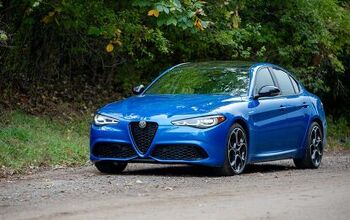Fiat Chrysler Posts Slightly Smaller Loss; North America Profitable

Fiat Chrysler Automobiles revealed a second-quarter loss of $1.24 billion on Friday, down slightly from the $1.8 billion net loss posted for Q1.
As before, the pandemic weighed heavily on the automaker’s finances, though this spring’s two-month shutdown of domestic manufacturing and the revenue drop arising from the virus didn’t spell red ink for its all-important North American region.
Overall, net revenues tumbled 56 percent, year over year, in the second quarter. Adjusted earnings before interest and taxes stood at negative $1.1 billion, which is half of the $2.2 billion loss predicted by a smattering of analysts polled by Reuters. The automaker’s recovery began in earnest in June. FCA said.
“Our second quarter showed that decisive actions and extraordinary contributions from our workforce enabled FCA to contain the impact of the COVID-19 crisis,” said CEO Mike Manley in a statement. “While the company remains vigilant about the health and safety of employees, our plants are up and running, dealers are selling in showrooms and online, and we have the flexibility and financial strength to push ahead with our plans.”
In the automaker’s North American bread basket, second-quarter adjusted pre-tax earnings were in the positive, at $46 million. Net revenue fell 53 percent due to lower sales volumes, though actual shipments were off 62 percent.
FCA said the ongoing pandemic makes it even more eager to leap into bed with France’s Groupe PSA.
“The COVID-19 crisis has further underlined the compelling logic of the Groupe PSA and FCA merger. Work by both teams towards the completion of the merger has continued apace and we expect to meet the objective of combining as a single company by the end of the first quarter of 2021,” the automaker stated.
“Antitrust approvals have already been granted by twelve of twenty-two jurisdictions. The review initiated by the European Commission is not expected to delay the merger timetable.”
You’ll recall that July delivered news of a new name for the combined companies: Stellantis.
[Image: Fiat Chrysler Automobiles]

More by Steph Willems
Latest Car Reviews
Read moreLatest Product Reviews
Read moreRecent Comments
- Jkross22 When I think about products that I buy that are of the highest quality or are of great value, I have no idea if they are made as a whole or in parts by unionized employees. As a customer, that's really all I care about. When I think about services I receive from unionized and non-unionized employees, it varies from C- to F levels of service. Will unionizing make the cars better or worse?
- Namesakeone I think it's the age old conundrum: Every company (or industry) wants every other one to pay its workers well; well-paid workers make great customers. But nobody wants to pay their own workers well; that would eat into profits. So instead of what Henry Ford (the first) did over a century ago, we will have a lot of companies copying Nike in the 1980s: third-world employees (with a few highly-paid celebrity athlete endorsers) selling overpriced products to upper-middle-class Americans (with a few urban street youths willing to literally kill for that product), until there are no more upper-middle-class Americans left.
- ToolGuy I was challenged by Tim's incisive opinion, but thankfully Jeff's multiple vanilla truisms have set me straight. Or something. 😉
- ChristianWimmer The body kit modifications ruined it for me.
- ToolGuy "I have my stance -- I won't prejudice the commentariat by sharing it."• Like Tim, I have my opinion and it is perfect and above reproach (as long as I keep it to myself). I would hate to share it with the world and risk having someone critique it. LOL.


































Comments
Join the conversation
My next truck might be a Ram. (Can't believe I'm typing this.)
If the North American market is profitable, you can imagine the margins on Jeeps and Rams (formerly Dodge).